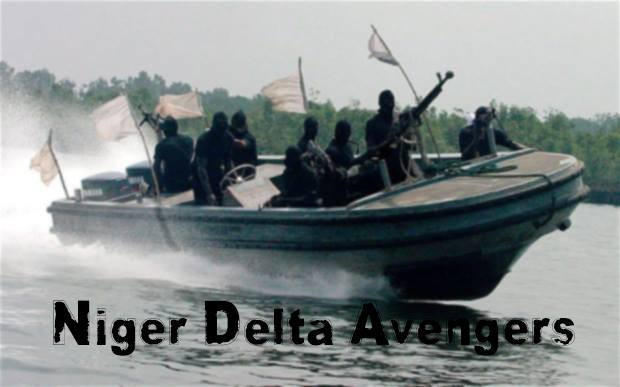Niger Delta Avengers and Fulani herdsmen: Nigeria's Anglican Church fears new conflicts
Diocese of Abuja of the Church of Nigeria urges groups behind recent attacks to cease violent activities.
Nigeria's Anglican Church has expressed concern at renewed violence blamed on militants in the oil-rich Niger Delta area and militants from the Fulani ethnic group. The Diocese of Abuja of the Church of Nigeria urged groups behind recent attacks on oil pipelines in the south to cease violent activities, claiming Nigeria cannot afford another war.
The church added that the African nation is already facing major issues including a fuel crisis, the insurgency of Boko Haram terrorists and independence calls by pro-Biafran separatists.
Most Reverend Nicholas D. Okoh, primate of the Church of Nigeria and archbishop of Abuja Diocese, also urged the federal government to contribute to create a friendly atmosphere that can help resolve the conflict peacefully, the Vanguard newspaper reported.
Okoh's calls came as attacks blamed on the newly-formed Niger Delta Avengers (NDA) militant group partially halted oil production and forced Chevron and Royal Dutch Shell to close at least two sites following attacks linked to the group.
President Muhammadu Buhari has accused the NDA of vandalism and warned that the Nigerian government would deal with the group in the same way it is tackling Boko Haram in the country's northeast.

Who are the Niger Delta Militants (NDA)?
NDA is the latest militant organisation to wage war against the Nigerian government due to perceived marginalisation in the Niger Delta. The group describes itself as a group of Niger Deltans on a "revolution to free Nigeria from the wicked administration".
The group has warned that attacks against Shell and Chevron are "just the beginning", unless the government meets NDA's demands, which include the unconditional release of Nnamdi Kanu, one of the leaders of a pro-Biafran movementdemanding the independence of Biafran territories forcibly annexed to Nigeria during British colonisation.
Fulani Herdsmen
Okoh also said the government should not implement a bill proposing the creation of grazing reserves for Fulani herdsmen across the country, arguing the herdsmen "have a notorious history of attacking their host communities".
"The synod hereby states unequivocally that the move to create grazing reserves for Fulani herdsmen around the country does not have our support. This is because the move threatens to accord a set of people with unwarranted special preference, making them indigenes of all regions of the country," he said.
"There have been countless isolated cases of herdsmen brutality to their host communities. These notorious activities of herdsmen are capable of dragging the country into another civil war. The Fulani herdsmen are private businessmen who take away all proceeds of the business, not sharing with either their host communities or the government."

Who are the Fulani herdsmen?
Fulani militants have been alleged to carry out attacks mainly in Nigeria and CAR. In Nigeria, they mainly operate in the Middle Belt and attack private citizens to gain control of grazing lands. At least 1,229 people are believed to have been killed in suspected attacks by Fulani militants in Nigeria in 2014.
In 2015, a report by the Global Terrorism Index (GTI) described the militants as the fourth deadliest terrorist group and warned attacks attributed to them were on the rise in Nigeria . The report also claimed there was a link between Fulani militants and Boko Haram.
Fulani militants have also been accused by pro-Biafran secessionist groups of targeting Christians and southerners in a bid to "Islamise the Christian-dominated region".
More on the Fulani herdsmen here.
Nigeria up close: Check out our Flipboard magazine
© Copyright IBTimes 2025. All rights reserved.






















